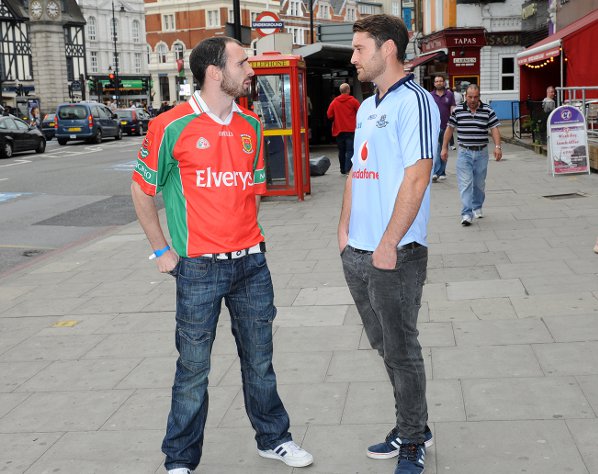ARE you defined by where you’re from or where you are?
Are you always someone who belongs to a small town in Roscommon if that was where you were born? Or do you belong to the place you have lived in for 15 years, which just happens to be a big city in another country?
If, for instance, you leave a village in Cork at the age of 20 and settle in a big English city, do you become part of that city after two years? Five years? 10? 15 or 20? Never?
Are you always, no matter what, still from that place where you were born?
Does the city you arrive in have no impact on you at all? Some? A lot? Or does it impact on everything in every way?
Are there degrees of belonging?
For instance, if I lived in England for 35 years and Ireland for 14 at what stage does my Englishness lessen and my Irishness grow?
Does someone who was born here but has been in England for 35 years become less Irish than me as time goes on?
Of course, none of this matters if you adhere to the simple rule of defining people forever by their place of birth. In that case there are never any complications. James Connolly is never an Irishman. Likewise Eamon de Valera. The Duke of Wellington always is.
I can’t help though the deep feeling of suspicion I feel whenever I hear a very complicated world made into something simple and uncomplicated. I can’t help wondering what agenda that serves.
The world without complexity becomes a very easy way of keeping some people forever out and some people forever in.
In fact, I think it would be very justifiable to say that wherever bigots gather, wherever they raise their flags, that is where a complex world is being made simple.
But anyone who has left Ireland over the last few years, as the country and city and town and village they were born and reared in stumbled under the collapsing weight of the Celtic Tiger, must by now be feeling a very set of complex emotions indeed.
 Pic by Malcolm McNally
Pic by Malcolm McNallyProbably the urge to go back is always there. Maybe not as strong as it was that first week but still there, still beating away. But being away is kind of exciting too, isn’t it? Kind of liberating almost.
And those big British cities, well, they’re heady places aren’t they, especially if you are young and full of energy and can find a place to work and a place to live.
The re-invigoration of Irishness in Britain that has come about as a result of the economic collapse in Ireland is obvious. We need to look no further than the exploits of the London team in the All-Ireland championship this summer to see that.
What it does make clear though is the constantly changing nature of identity. There is no guarantee what shape that London team will be in next year. No guarantee who will be on the panel.
Staying with London it is fairly clear too that the established Ireland in London that was already there, the Kilburn or Cricklewood shaped London, bears little or no relevance to those coming over in the wake of the Celtic Tiger.
For those people they are finding London anew. They are discovering an unexplored country. That is just the way it goes.
Yet, even if a new generation dismisses the symbols and sounds of the Irishness that came before it, thinking of it as only really belonging to the realms of stereotype, that Irishness was and is still as genuine as anything they have now or will have in the future.
But that is identity and belonging. Who can define them? I have tried for a long time, believe me, written about it for years and I feel no nearer to finding the answer. If, in fact, there is one.
So are you from where you’re from or where you are? I don’t know, even if you do.
I just know that some days it’s one answer and some days the other. Where are you from? I still get asked that now and I still don’t know the answer.
Where I’m living now or where I lived before. I’m often not even quite sure what I’m being asked. Of course, others know the answer straight away. Some people have all the answers, though, don’t they?
But wouldn’t you rather be with the ones who are never quite sure?

